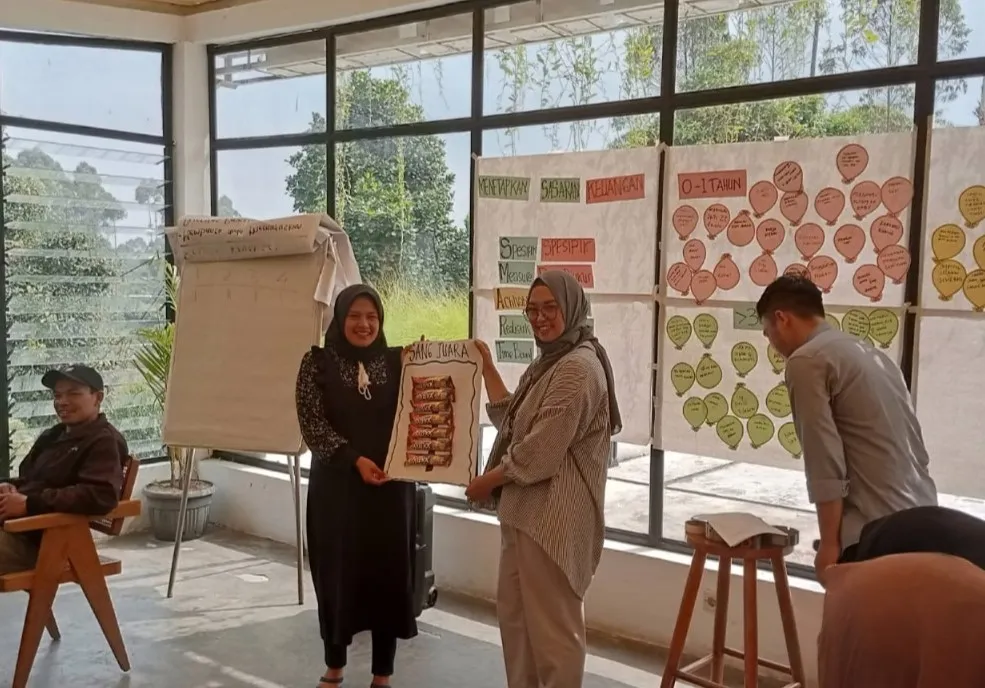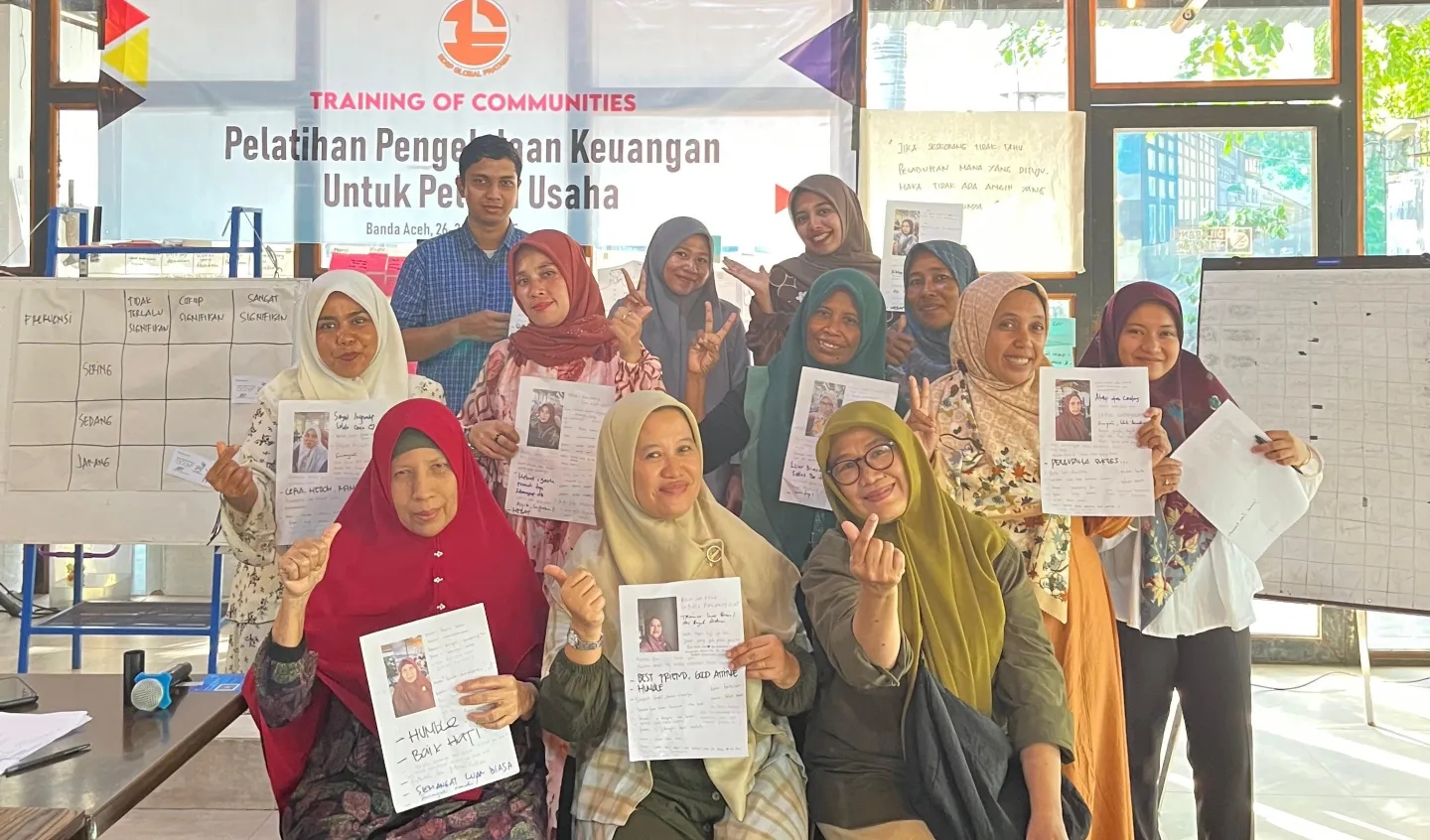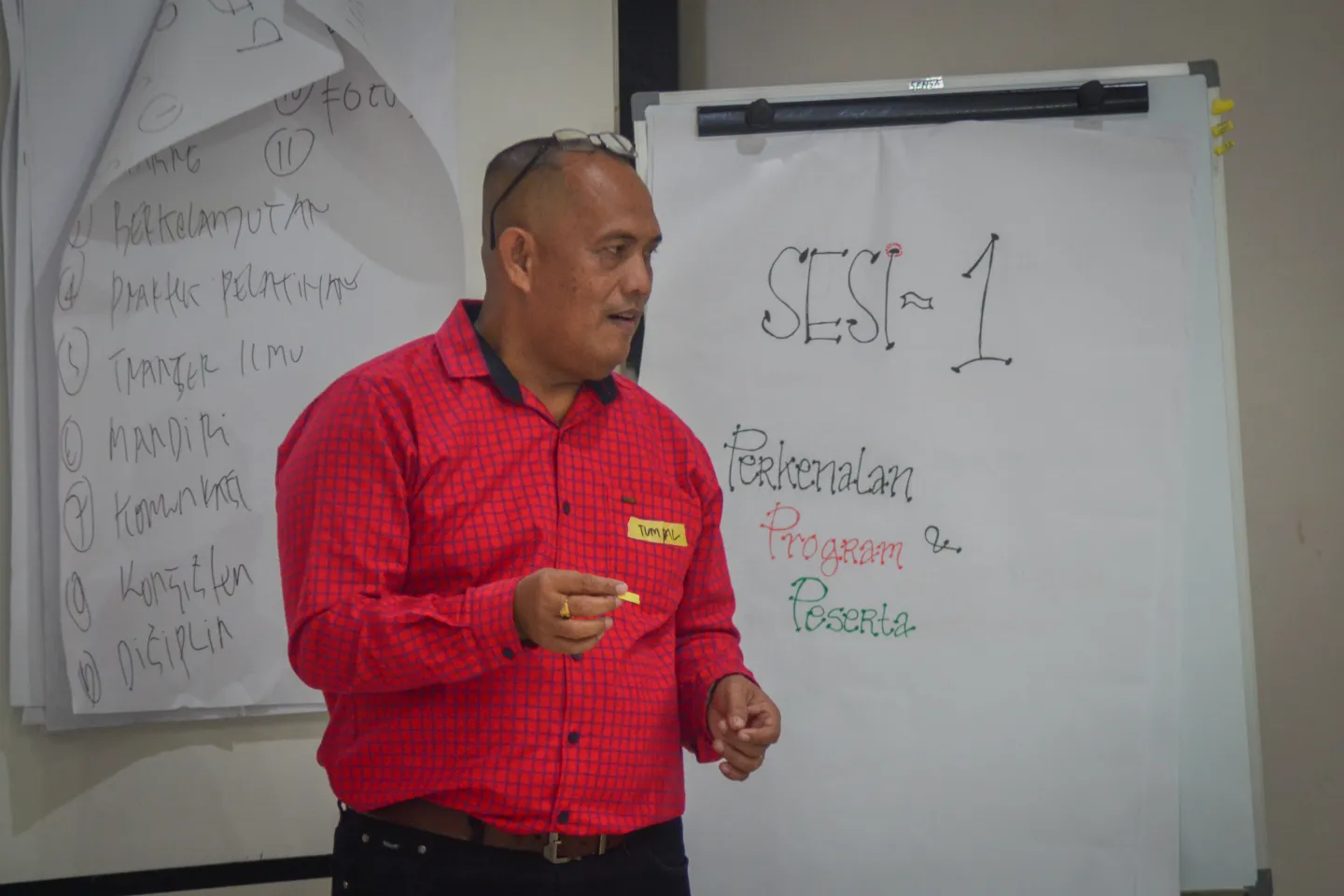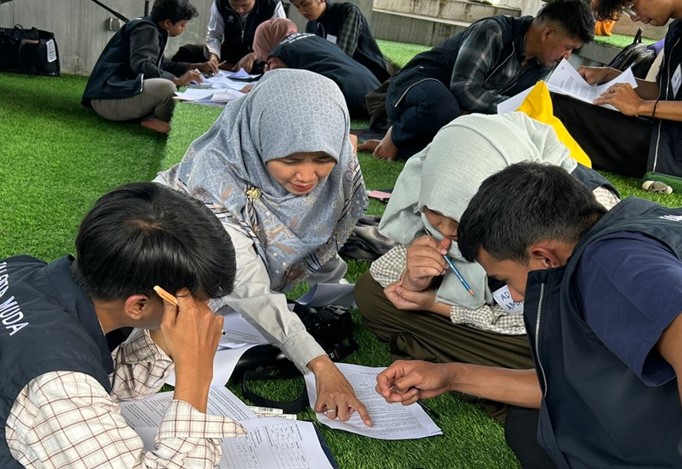In rural Indonesia, many small and medium-sized enterprises (SMEs) struggle to grow due to limited access to formal finance. Informal agricultural workers often lack financial records, collateral, or the confidence to approach banks, making them “high risk” in the eyes of lenders and pushing them toward expensive informal loans.
To address this, the ILO’s Promoting SME Enterprises through Improved Entrepreneurs’ Access to Financial Services Phase 2 (Promise II Impact), funded by the Swiss State Secretariat for Economic Affairs (SECO), focuses on building the capacity of local trainers. These trainers help farmers and entrepreneurs improve financial literacy, adopt sound business practices, and use digital tools, ultimately making them more bankable.
“By empowering trainers, we are connecting rural entrepreneurs with the financial services they need,” said Djauhari Sitorus, Project Manager for Promise II Impact. “We aim to ensure they not only gain access to finance but also the skills and confidence to secure formal funding, often for the first time.”
West Java: Building creditworthiness
Since joining the ILO’s online training programme in 2020, Ervin Puluhulawa, a trainer from West Bandung Vocational and Productivity Training Center (BPVP), has become a driving force in empowering local entrepreneurs. Through training programmes using ILO modules like Gender and Entrepreneurship Together (GET Ahead), Financial Education as well as Start and Improve Your Business (SIYB), she has trained over 550 participants, including dairy farmers and small business owners, using engaging adult learning methods.
Her sessions teach cash flow management, savings goals and record-keeping skills that boost eligibility for cooperative and rural bank loans. Many now invest in equipment, expand their herds or develop new products, moving beyond daily income to long-term business growth. “I am proud when farmers use loans to grow their business, not just for consumption. That’s when I know the training works,” she said, proudly.
Unlocking loans through better records

Fitri Adrian (right) during a training in Pangalengan, Bandung Regency
At Koperasi Peternakan Bandung Selatan (KPBS) in Pangalengan, trainer Fitri Herliana Adrian has spent 13 years helping dairy farmers strengthen their financial discipline. After completing the ILO’s Training of Trainers program in May 2023, she has reached 340 participants with lessons on record-keeping by separating household and business finances and setting financial goals. Her coaching has also benefited over 100 farmers, including Iceu, who used a cooperative loan to purchase a milking machine, cut labour costs, and secure education savings for her children.
“When farmers keep daily milk production and expense logs, they have proof of steady income. That’s powerful in a loan application,” Fitri said. “However, for members who are still hesitant to use mobile apps for record-keeping, it is my job to guide them step-by-step until they feel comfortable.”
Aceh: Opening better access to financial services

Training participants in Banda Aceh
Nurul Fatmawati, a trainer based in Aceh, has trained more than 1,000 participants using ILO entrepreneurship and financial literacy modules, guiding them to separate household and business funds, plan for planting seasons, and register for employment insurance. She also facilitates access to credit, enabling 11 patchouli farmers to expand their land through Sharia Rural Bank (BPRS) Mustaqim Aceh.
Nurul takes pride in a recent success story: a patchouli farmer who, after keeping proper financial records for six months, secured formal financing to expand his land. “He told me that he never thought a bank would trust him. That’s the kind of change that keeps me motivated,” she said, adding that her greatest pride lies in seeing these farmers grow more financially literate and feel optimistic about their futures.
East Nusa Tenggara: Accessing finance with better terms and conditions

Tumpal P. Situmorang, a lecturer at Universitas Wira Wacana Sumba for 25 years, has trained over 250 seaweed farmers, 24 horticulture farmers, and 24 micro and small entrepreneurs in East Sumba Regency of East Nusa Tenggara (NTT) to calculate production costs and set profitable prices.
“If they can calculate how much rope they need for drying seaweed, they can calculate their production costs and set a price for profit,” he explained.
These skills improve farmers’ bargaining power and provide the financial data needed for formal loan applications. Through the ILO’s collaboration with the local Bank NTT, 24 farmers accessed zero-interest loans, enabling ventures like seaweed snack production and clothing shops. As a result, local farmers are now shifting away from high-interest informal credit toward secure, affordable financing.
